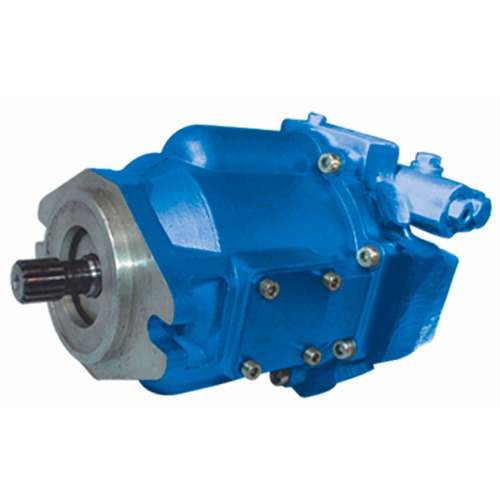Hydraulic pumps are widely used across industries for a variety of applications. Different types of hydraulic pumps are available such as gear pumps, vane pumps, and piston pumps. Gear pumps are commonly used as a popular choice in the hydraulics industry due to their low cost. These inexpensive pumps can perform the job well depending on the type of application. However, many industries are switching from gear pumps to piston pumps. This is because piston or plunger pumps are positive displacement pumps, offering several benefits. To understand how this type of pump can benefit your application, let’s begin with understanding what exactly a piston pump is.
What is Piston Pump?
Piston pumps, also referred to as reciprocating pumps, are positive displacement pumps in which the high-pressure seal reciprocates alongside the piston. This type of pump is typically used to compress gases or transfer liquids to achieve high-pressure operations without affecting the flow rate. Due to this function, these pumps are frequently used in water irrigation or distribution systems. Positive displacement is a characteristic of the piston pump. For moving liquids, these pumps employ a piston, diaphragm, or plunger. The input and output valves on these pumps are check valves. The typical piston pump is a rotary pump that rotates the piston using a wheel or rotating shaft.
The four different types of piston pumps are lift pumps, force pumps, axial pumps, and radial piston pumps. These pumps have the capacity of differential pressures up to 10,000 pounds per square inch (psi). You can operate lift and force pumps manually or with the assistance of an engine from these pumps.
Benefits of Piston Pump
Piston pumps are best suited for applications involving low flow rates at extremely high pressure. In addition to such applications, these pumps have nearly entirely replaced centrifugal pumps with their numerous specialized design types. The self-priming ability and high efficiency of piston and plunger pumps is their main advantages. With a wide pressure range that can be controlled without an impact on the rate of flow, piston pumps provide a range of benefits. Let’s check out some more benefits of piston pumps.
- More Horsepower
This type of pump can produce extremely high pressures. It enables maintaining the flow rate while keeping the high-pressure control. Unlike fixed displacement gear pumps, which waste energy, piston pumps adjust flow. When a higher flow is required, piston pumps increase horsepower, whereas gear pumps provide the same flow continuously. Furthermore, because of their higher horsepower, piston pumps to aid in fuel conservation (hp).
- Several Applications
Piston pumps can be used for a variety of applications. These multitasking pumps can be customized to suit specific requirements. The adjusting flow rate feature of piston pumps makes these pumps suitable for operations that require different flows. Piston pumps are widely used across industries such as oil & gas, mining, chemical industry, water treatment, and more.
- Efficiency
The multiple features and variety of applications of piston pumps indicate their efficiency. With high-horsepower variable piston pumps, you can get more work done. From getting continuous flow to adjusting flow requirements, piston pumps can suit all applications.


